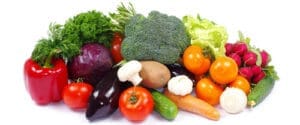NILU has accredited laboratories which can provide analyses of environmental contaminants in food products and packaging. The results are evaluated in relation to statutory limits for these contaminants.
Some substances have a long turnover time in the body, and may accumulate. For this reason, the permissible levels of many environmental contaminants in foodstuffs are set very low, as is the recommended maximum weekly intake. Such substances include dioxins, PCBs, PAHs, lead, cadmium and mercury. These low limits place high demands on analytical methods and the laboratory must be able to document good quality control. NILU is accredited according to NS-EN ISO / IEC 17025 and can analyse environmental contaminants at very low concentrations.
Food industry services:
- Analyses of foreign matter in foods and packaging
- Environmental toxicity analyses of fish and fish oils
- Assessment of results in relation to maximum permissible levels and eco-toxicological studies
- Chemical analyses as part of quality control for food production
- Eco-label support
Examples of NILU’s commissions:
Environmental contaminants in fish and marine oils
Most environmental contaminants are fat-soluble, and are taken up and accumulated by fish. Thus, all fish and marine oils should be cleaned before they are sold. NILU has extensive experience in the analysis of fish and marine oils, and has the instruments and expertise needed to detect the presence of contaminants at very low concentrations.
Plant-based foods
 Most environmental contaminants are fat-soluble, and are taken up and accumulated by fish. Thus, all fish and marine oils should be cleaned before they are sold. NILU has extensive experience in the analysis of fish and marine oils, and has the instruments and expertise needed to detect the presence of contaminants at very low concentrations.
Most environmental contaminants are fat-soluble, and are taken up and accumulated by fish. Thus, all fish and marine oils should be cleaned before they are sold. NILU has extensive experience in the analysis of fish and marine oils, and has the instruments and expertise needed to detect the presence of contaminants at very low concentrations.
Read more: Kartlegging av fremmedstoffer i vegetabilske matvarer (Norwegian only)
